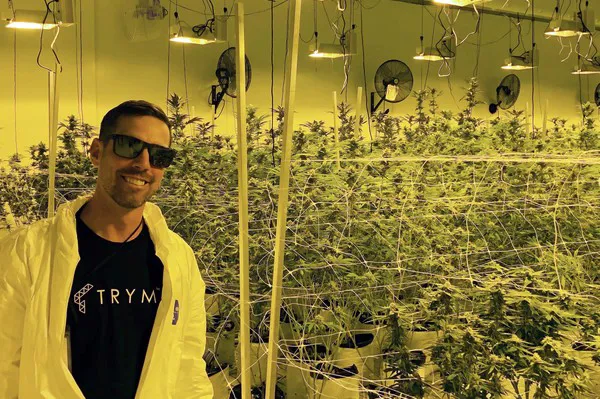“Decisions are made every day in cultivation facilities with little or no data, despite the fact that there is quite a bit of data in cultivation facilities,” Matt with Trym explains. “We’ve seen that the majority of growers keep their grow data on whiteboards, in notebooks, or in spreadsheets, but this data isn’t easily accessible. We started in order to give growers access to their cultivation data, allowing them to make informed decisions about their operations”
 The importance of data is particularly felt in an industry where there are no commonly accepted standards, and where customers are already quite product-savvy and always look for constant high quality. “Improving access to data allows growers to repeat the processes that proved to be successful,” Matt Mayberry, Trym CEO and co-founder, points out. “But not only that. Many growers are scaling up and expanding their operations. As a result, you have much larger grow rooms and way more employees to manage.” Additionally, growers in California have to report to the Metric track-and-trace system. “A lot of growers are getting familiar with this system,” Matt says. “While expanding their business, and focusing on delivering quality product to their customers, they then also have the additional regulatory burden of learning the new state regulations and reporting to Metrc. In addition to the farm management capabilities of Trym, we’re also a complete cultivation track-and-trace system that is fully integrated with Metric in California. Through this integration we’re helping growers increase efficiency across all aspects of their operation.”
The importance of data is particularly felt in an industry where there are no commonly accepted standards, and where customers are already quite product-savvy and always look for constant high quality. “Improving access to data allows growers to repeat the processes that proved to be successful,” Matt Mayberry, Trym CEO and co-founder, points out. “But not only that. Many growers are scaling up and expanding their operations. As a result, you have much larger grow rooms and way more employees to manage.” Additionally, growers in California have to report to the Metric track-and-trace system. “A lot of growers are getting familiar with this system,” Matt says. “While expanding their business, and focusing on delivering quality product to their customers, they then also have the additional regulatory burden of learning the new state regulations and reporting to Metrc. In addition to the farm management capabilities of Trym, we’re also a complete cultivation track-and-trace system that is fully integrated with Metric in California. Through this integration we’re helping growers increase efficiency across all aspects of their operation.”
The three crucial aspects
The Trym solution addresses three key things: activities that are performed on the plants, conditions plants are exposed to, and the actual yield. “These three aspects are crucial to understanding what you produce and how you produce,” Matt points out. “We have developed our product by listening to growers and their feedback, and as a result, Trym is tailored to the needs of commercial growers. This is exactly why integrated with Argus and TrolMaster to incorporate environmental data from these systems into Trym. Additionally, we took that one step further: we have just launched a harvest analytics module, which links task, environmental, and yield together, in order to have a complete overview of the grow as a whole.”

Task management
On top of these features, Trym also has a task management function that helps to coordinate employees and directly send them tasks to perform. “This is especially relevant for large grows, where managers have to control thousands of plants and dozens of employees. By using Trym task management features, it’s possible to identify inefficiencies in the cultivation operation that can have an enormous impact on the profitability of the business. But mostly, Trym task management features improve visibility for the manager and accountability for the employees. We’ve heard from dozens of cultivation managers that Trym has helped them with the challenge of managing their team while maintaining quality and consistency of their crop.”
Diversification as key for the future
As the cannabis industry moves towards a scenario that would resemble the beer industry, where big, mass producers are surrounded by a constellation of small, craft producers, Matt points out that it will be of the utmost importance to provide products with a consistent quality. “It is crucial for the market to diversify, and for growers to be consistent with regards to the market sector they tackle. Because of this, we expect solutions like Trym will be indispensable for large scale operators to manage scaled operations with a focus on cost-reduction, as well as for smaller scale growers, who with a focus on craft-quality product.” According to Matt, there will be a specific moment that will mark the widening of the gap between mass produced and higher quality products. “If federal legalization will occur in the next years, it will likely be the catalyst for an expedited split between craft-quality and mass-produced product,” he observes. “That’s going to open up a huge market for cheap and affordable oil from international locations where labor and energy are much cheaper, and the imported oil can be used for edibles and vape pens here in the States. But don’t expect flower products to go away – this will be the segment where craft growers will surely thrive.”
For more information:
Trym
trym.io
